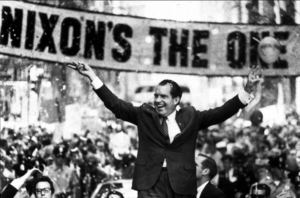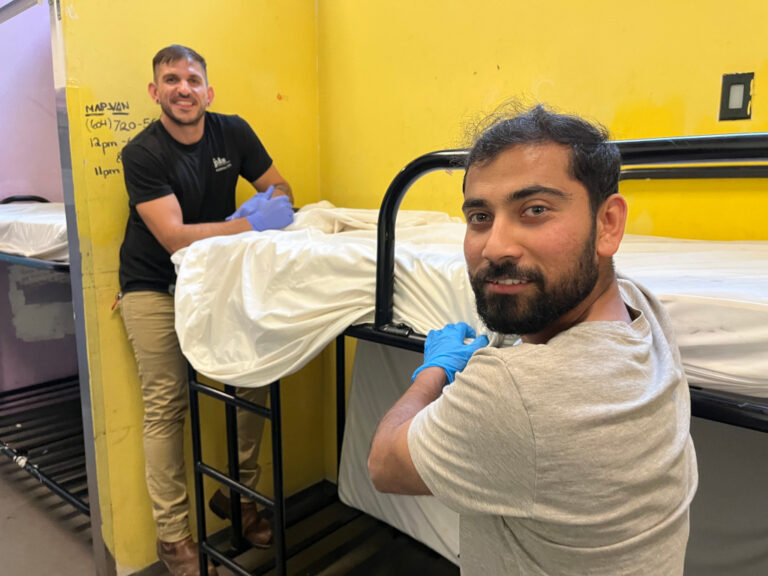The war on drugs has been a 50-year failure.
By whatever measure you judge it – human rights, health, public safety – it’s actually made things worse.
Former U.S. President Richard Nixon is said to have launched the war on drugs in 1971 to attack political opponents – at least according to his domestic policy adviser and convicted Watergate conspirator John Ehrlichman.
“The Nixon campaign in 1968, and the Nixon White House after that, had two enemies: the antiwar left and black people,” said Ehrlichman in 1994. “We knew we couldn’t make it illegal to be either against the war or blacks, but by getting the public to associate the hippies with marijuana and blacks with heroin, and then criminalizing both heavily, we could disrupt those communities.”
Although initially seen as a health crusade, it subsequently became politically expedient for Nixon to whip up hysteria and push a tough-on-crime platform.
Anti-drug policies have become more punitive over time, with sentencing and spending on enforcement particularly increasing in the 1980s and 1990s through the Reagan, Bush and Clinton administrations.
Trillion-dollar cost
The U.S. is said to have spent more than a trillion dollars on this forever war. The rest of the world is heavily invested as well, to the point that it’s politically difficult to admit that it’s counterproductive to wage war against a health issue.
Bad policy can be good politics: announcing that you are tougher on crime than your political opponents can be rewarded at the ballot box.
The issue is that psychoactive substances have been widely used by humans all over the world for millennia, and the amount of state force required to stop their use causes all sorts of unintended problems.
Alcohol is a case in point. There is a whole long list of medical and social problems caused by alcohol. Health and social campaigners succeeded in outlawing alcohol for a time. Prohibition was enforced in B.C. between 1917 and 1921, with differing dates in other provinces, and from 1920 to 1933 in the U.S.
Just as 2021 is the 50th anniversary of the war on drugs, it also marks 100 years since the end of alcohol prohibition in B.C.
The governments of the day ultimately realized that making alcohol available as a regulated substance saves lives and removed profits from organized crime. Alcohol prohibition didn’t work for the same reasons that the war on drugs is failing: criminalization is a supply-side intervention that fails to address demand, while leading to the consumption of more dangerous products.
Iron law of prohibition
The iron law of prohibition, a term coined by cannabis activist Richard Cowan, states that “as law enforcement becomes more intense the potency of prohibited substances increases.” Suppliers and consumers alike look to minimize the bulk of contraband.
During alcohol prohibition, beer drinkers were sold hard liquor. Similarly, the narcotics trade shifted from bulky opium to the more potent heroin, which has more recently been largely replaced by fentanyl/carfentanyl.
The product becomes more dangerous to consumers, yet prohibition abandons public health measures by leaving the responsibility of regulating drug markets in the hands of organized crime.
Policing the prohibition on drugs causes further problems in countries with pre-existing racial disparities. The UN Working Group of Experts on People of African Descent states: “The war on drugs has operated more effectively as a system of racial control than as a mechanism for combating the use and trafficking of narcotics.”
Generally speaking, another unforeseen outcome of intensive policing is increasing drug prices in communities. Removing supply and leaving demand unchecked pushes prices upwards, ultimately increasing the profitability of drug trafficking.
Put health first
It’s time to end the expensive and ineffectual war on drugs and take an evidence-based, health-first approach.
Decriminalization has worked in Portugal, driving down drug usage, death rates and HIV infections. Legalization of cannabis in Canada has created an industry netting $2.6 Billion in sales in 2020, with taxes going to the government rather than profits supporting organized crime.
The overdose crisis has been and continues to be an unmitigated tragedy. Safe supply and treatment options for those seeking them are two needed components to address this crisis.
It could save up to six lives a day in B.C. alone.




